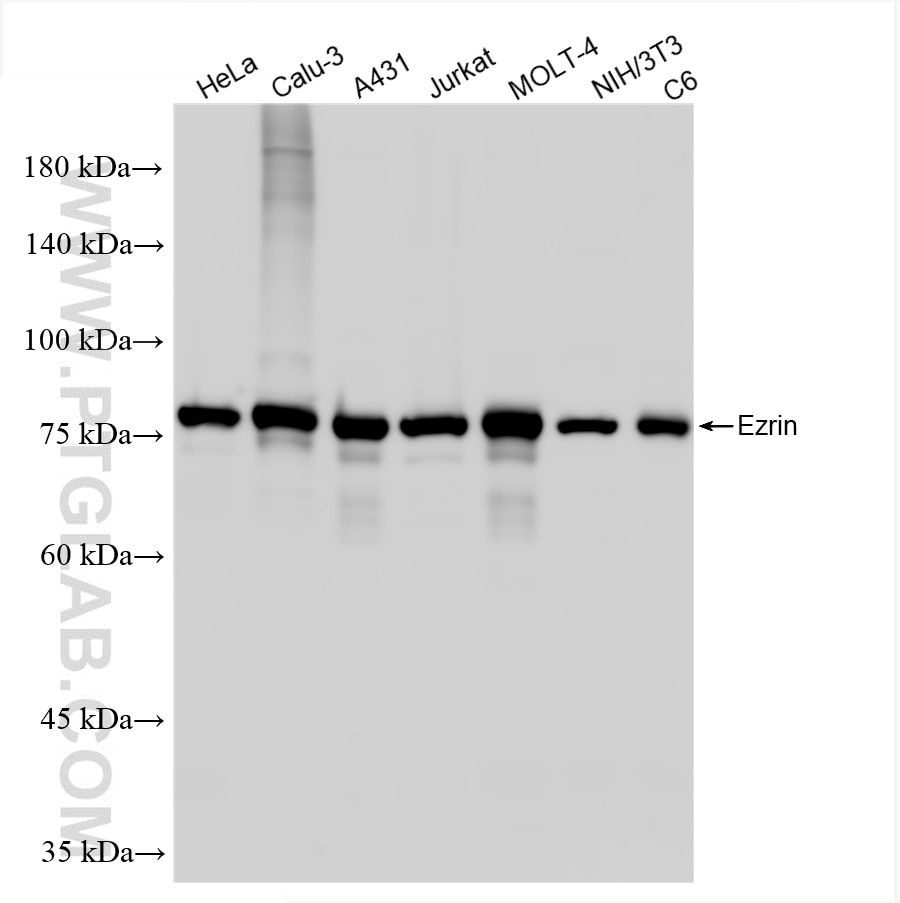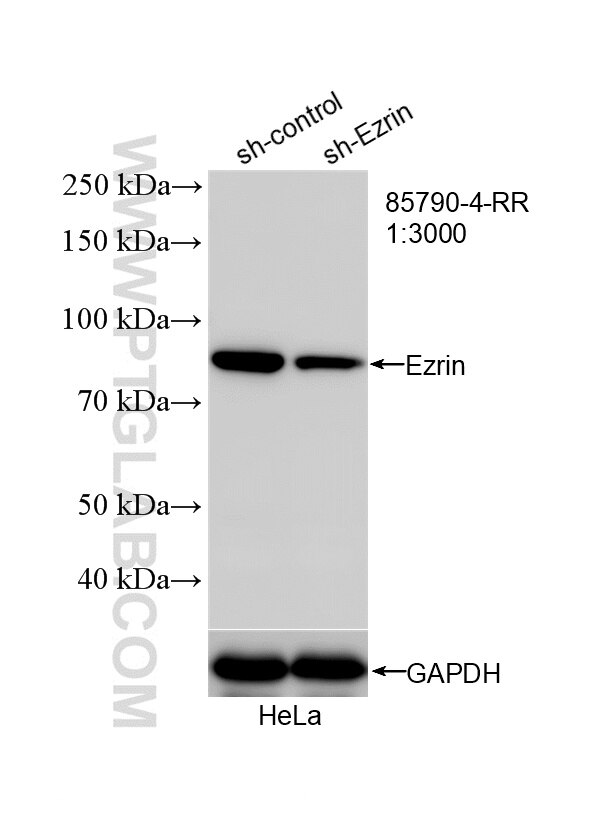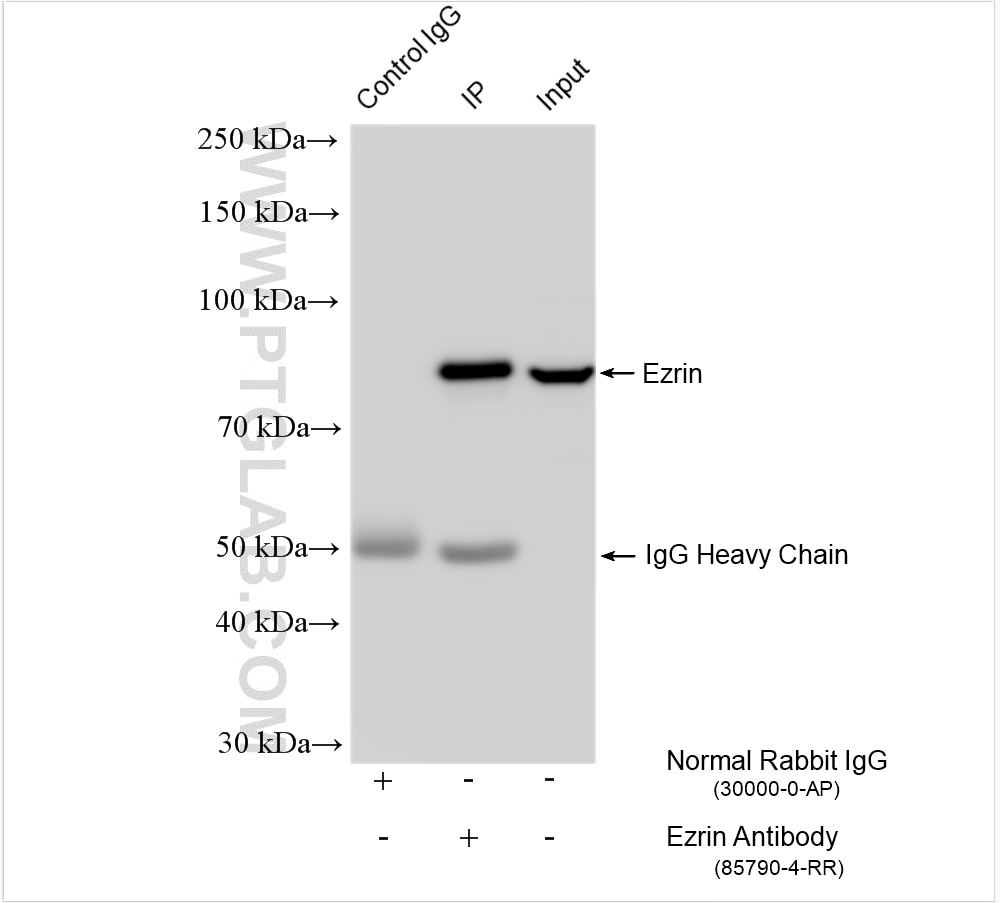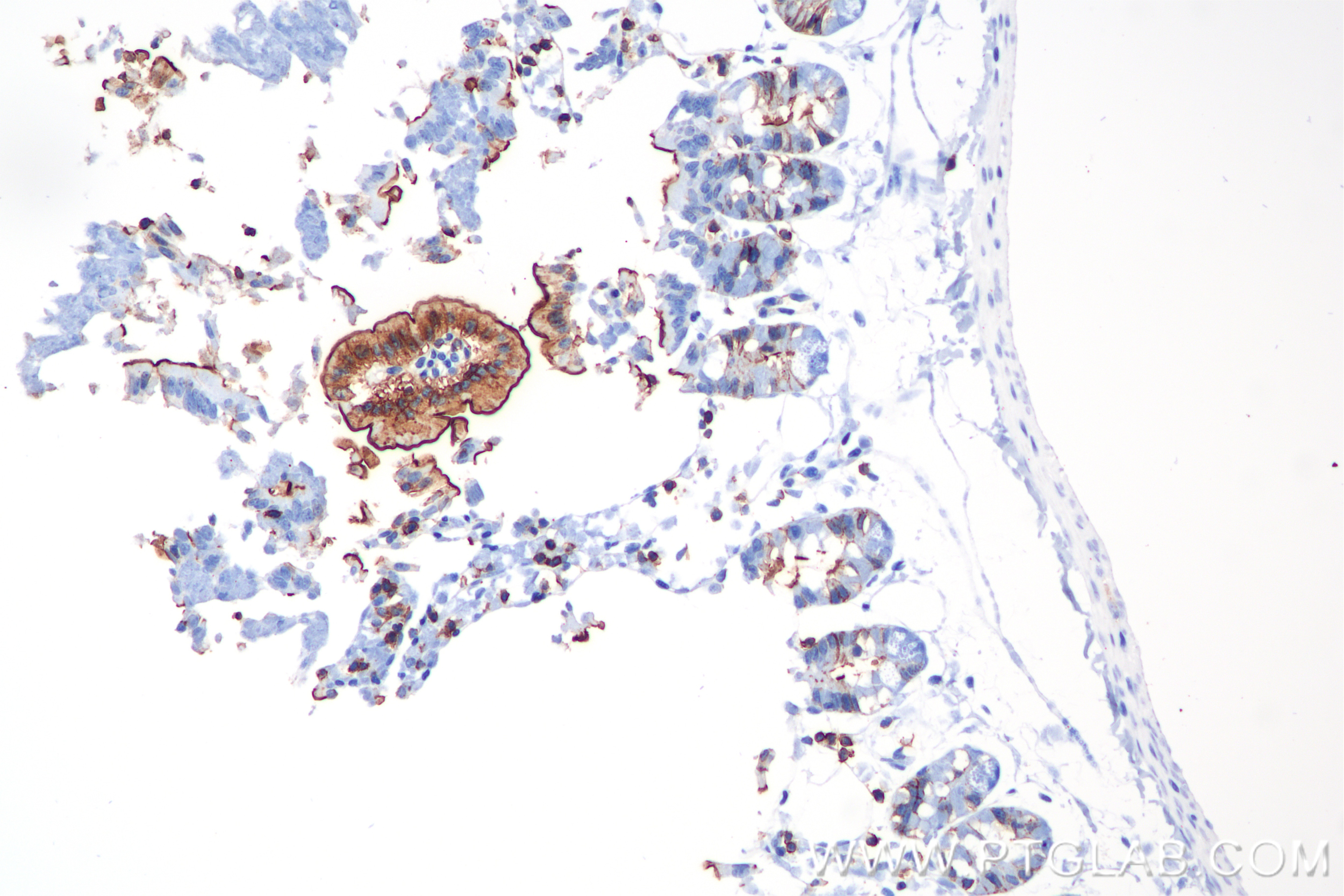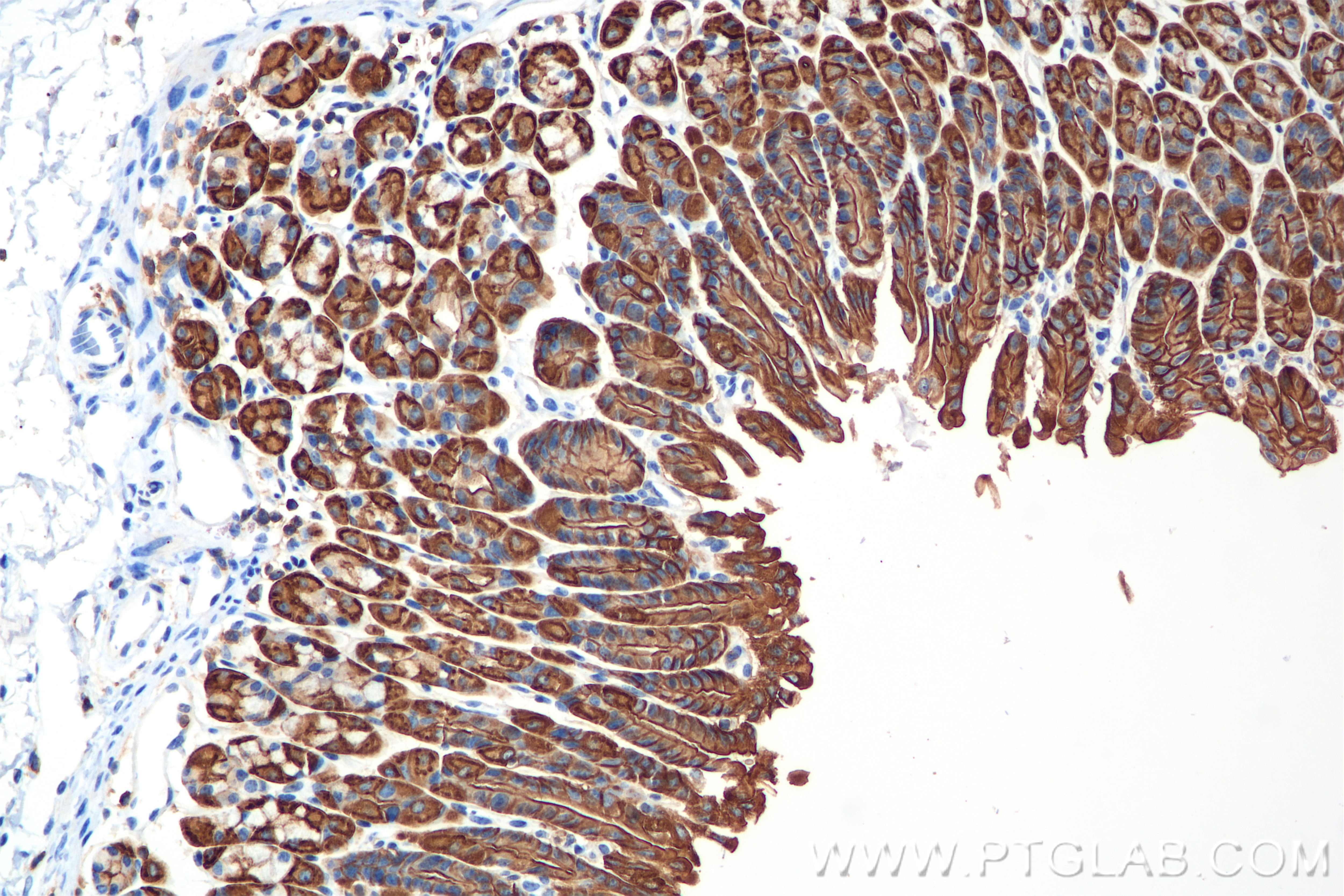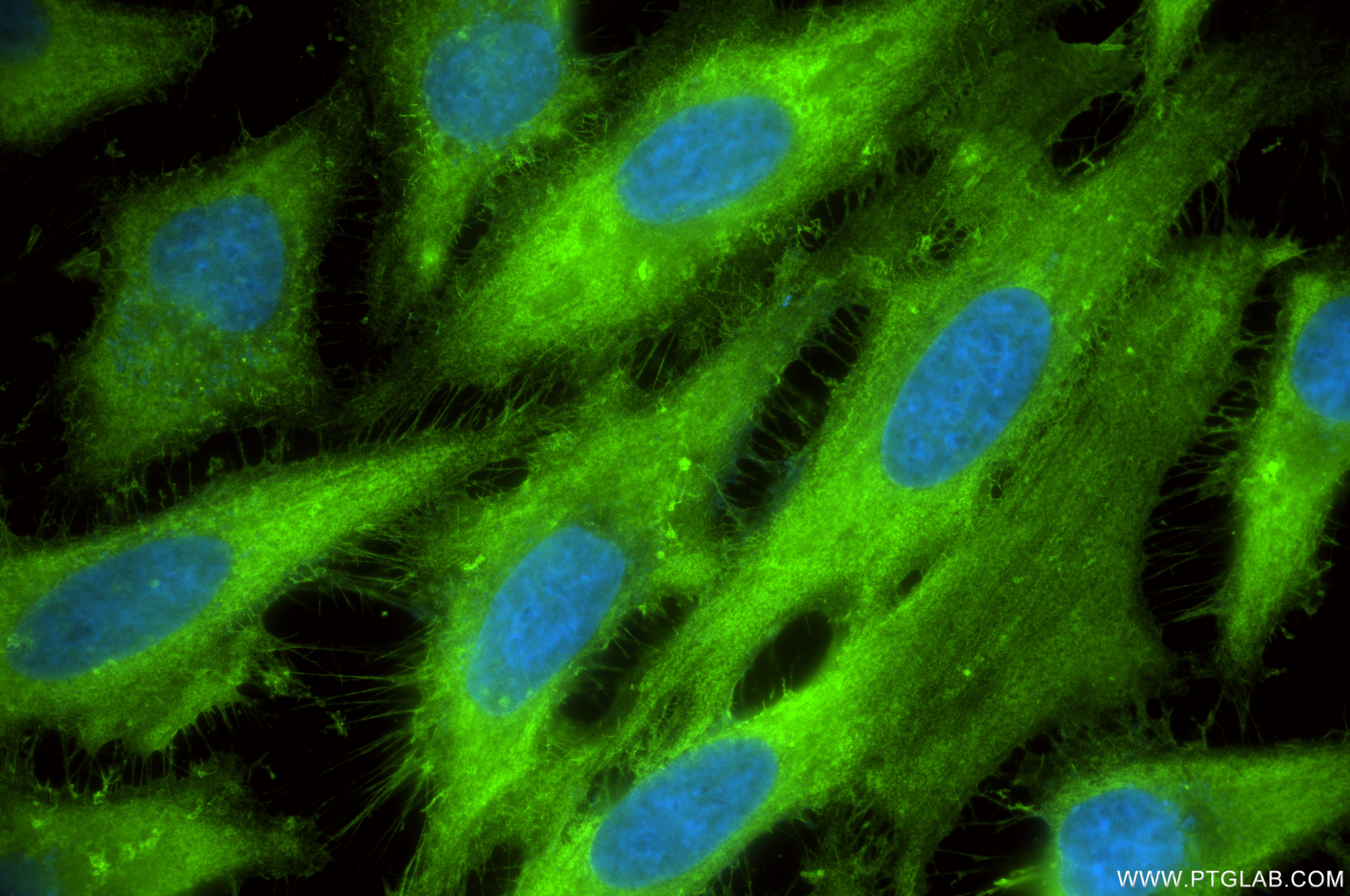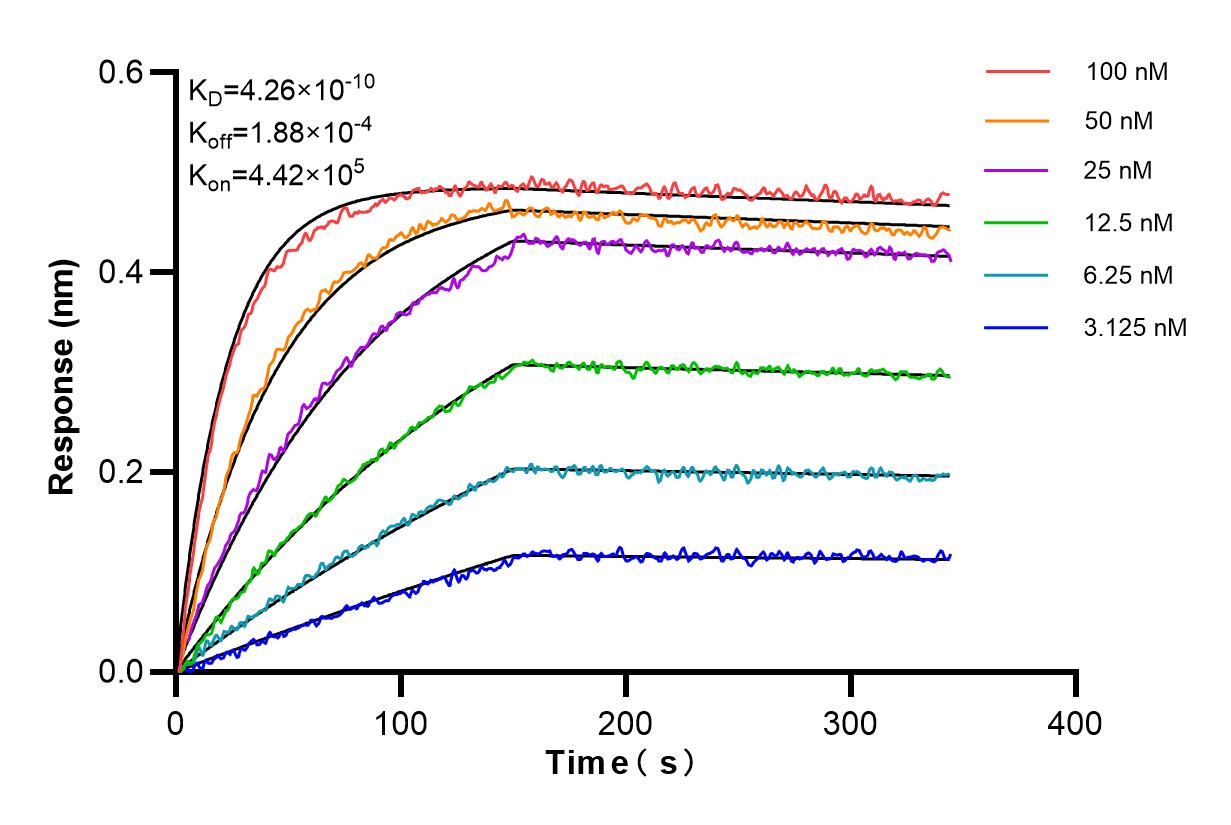Tested Applications
| Positive WB detected in | HeLa cells, Calu-3 cells, A431 cells, Jurkat cells, MOLT-4 cells, NIH/3T3 cells, C6 cells |
| Positive IP detected in | HeLa cells |
| Positive IHC detected in | mouse stomach tissue, Mouse small intestine tissue Note: suggested antigen retrieval with TE buffer pH 9.0; (*) Alternatively, antigen retrieval may be performed with citrate buffer pH 6.0 |
| Positive IF/ICC detected in | HeLa cells |
Recommended dilution
| Application | Dilution |
|---|---|
| Western Blot (WB) | WB : 1:5000-1:50000 |
| Immunoprecipitation (IP) | IP : 0.5-4.0 ug for 1.0-3.0 mg of total protein lysate |
| Immunohistochemistry (IHC) | IHC : 1:2000-1:8000 |
| Immunofluorescence (IF)/ICC | IF/ICC : 1:50-1:500 |
| It is recommended that this reagent should be titrated in each testing system to obtain optimal results. | |
| Sample-dependent, Check data in validation data gallery. | |
Product Information
85790-4-RR targets Ezrin in WB, IHC, IF/ICC, IP, ELISA applications and shows reactivity with human, mouse, rat samples.
| Tested Reactivity | human, mouse, rat |
| Host / Isotype | Rabbit / IgG |
| Class | Recombinant |
| Type | Antibody |
| Immunogen |
CatNo: Ag23530 Product name: Recombinant human Ezrin protein Source: e coli.-derived, PGEX-4T Tag: GST Domain: 477-529 aa of BC013903 Sequence: VYEPVSYHVQESLQDEGAEPTGYSAELSSEGIRDDRNEEKRITEAEKNERVQR Predict reactive species |
| Full Name | ezrin |
| Calculated Molecular Weight | 69 kDa |
| Observed Molecular Weight | 70-80 kDa |
| GenBank Accession Number | BC013903 |
| Gene Symbol | Ezrin |
| Gene ID (NCBI) | 7430 |
| ENSEMBL Gene ID | ENSG00000092820 |
| Conjugate | Unconjugated |
| Form | Liquid |
| Purification Method | Protein A purification |
| UNIPROT ID | P15311 |
| Storage Buffer | PBS with 0.02% sodium azide and 50% glycerol, pH 7.3. |
| Storage Conditions | Store at -20°C. Stable for one year after shipment. Aliquoting is unnecessary for -20oC storage. 20ul sizes contain 0.1% BSA. |
Background Information
Ezrin is a member of the ERM (Ezrin, Radixin, Moesin) protein family and serves as a crucial linker between the cell membrane and the actin cytoskeleton. It plays significant roles in various cellular processes, including maintaining cell morphology, facilitating cell movement and adhesion, regulating signal transduction, and influencing apoptosis.
Protocols
| Product Specific Protocols | |
|---|---|
| IF protocol for Ezrin antibody 85790-4-RR | Download protocol |
| IHC protocol for Ezrin antibody 85790-4-RR | Download protocol |
| IP protocol for Ezrin antibody 85790-4-RR | Download protocol |
| WB protocol for Ezrin antibody 85790-4-RR | Download protocol |
| Standard Protocols | |
|---|---|
| Click here to view our Standard Protocols |

